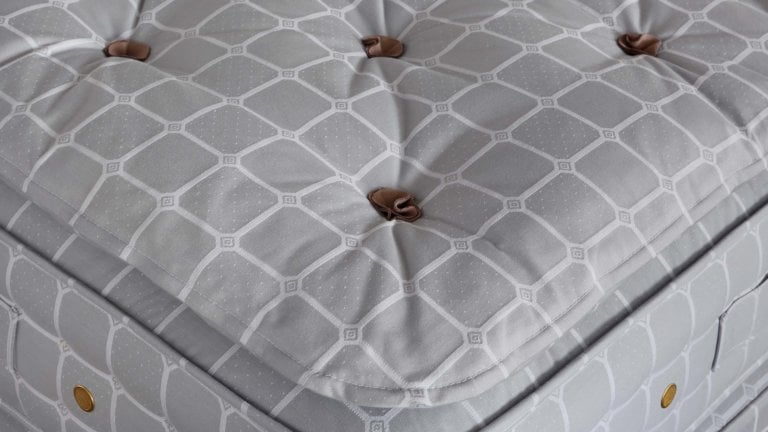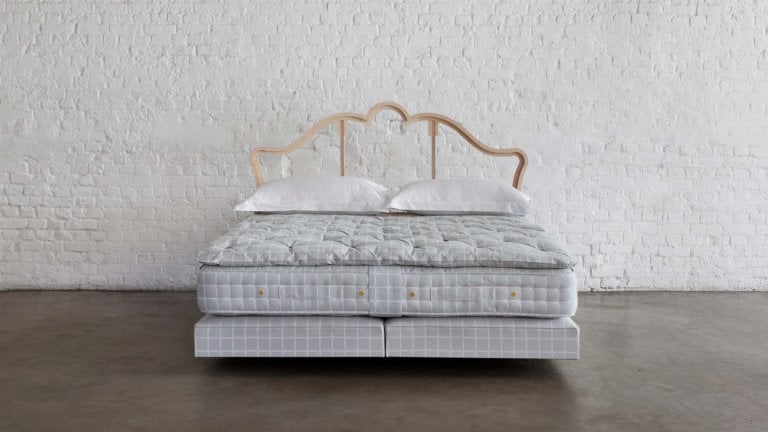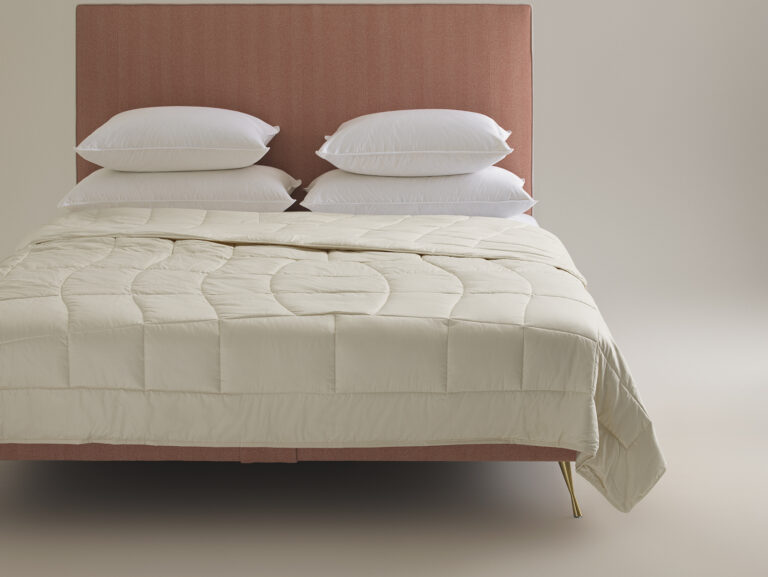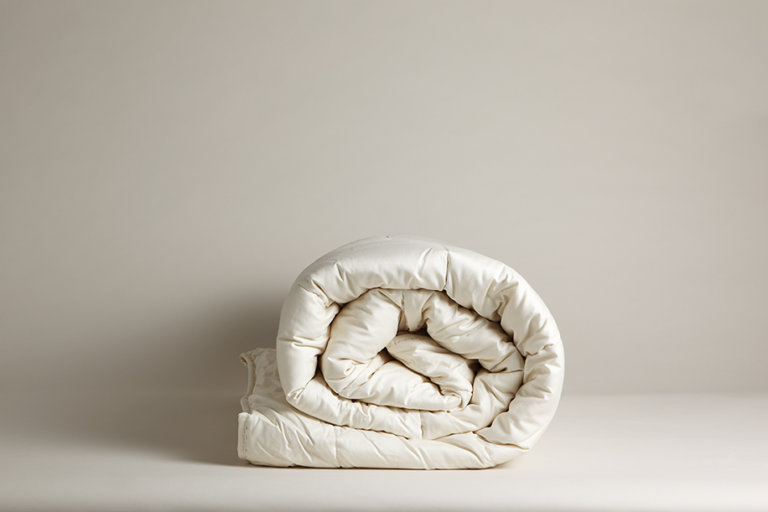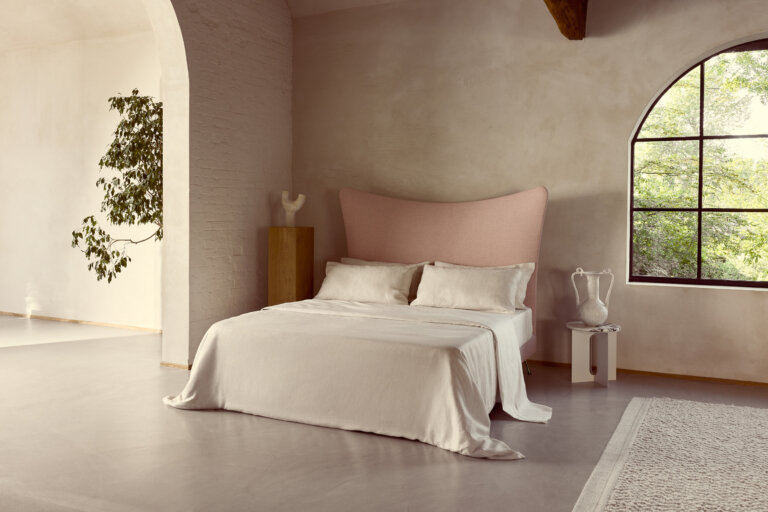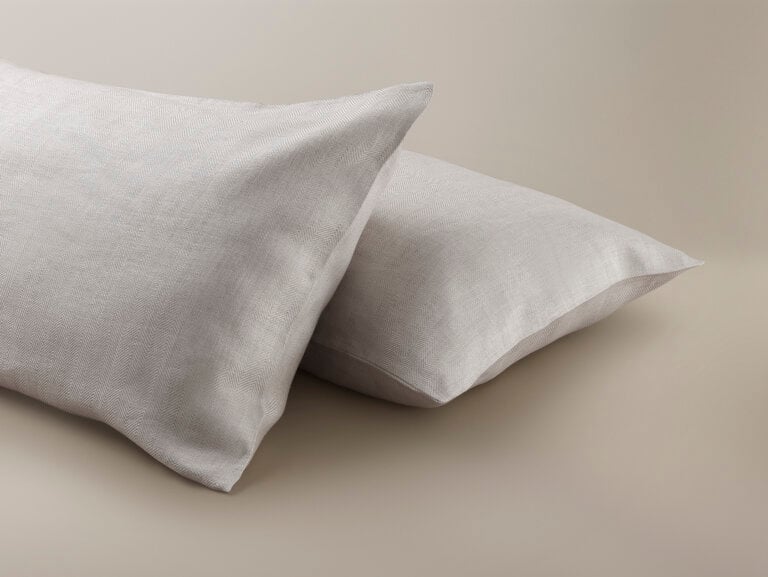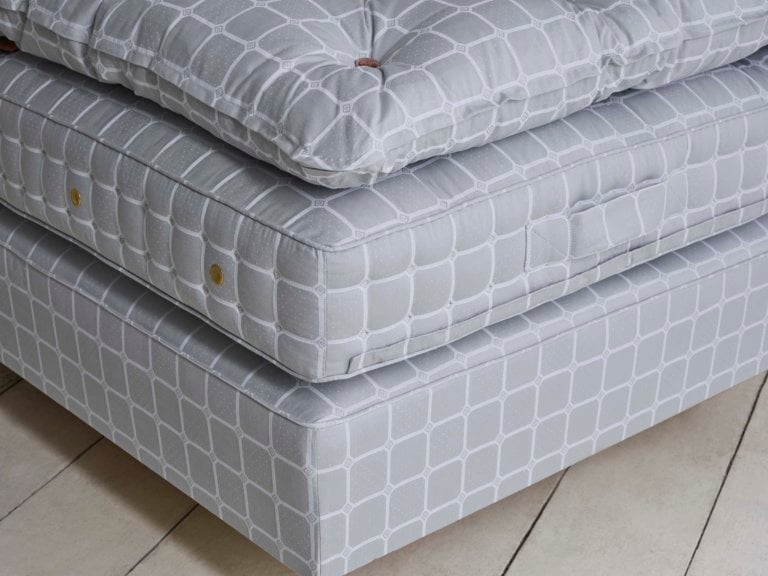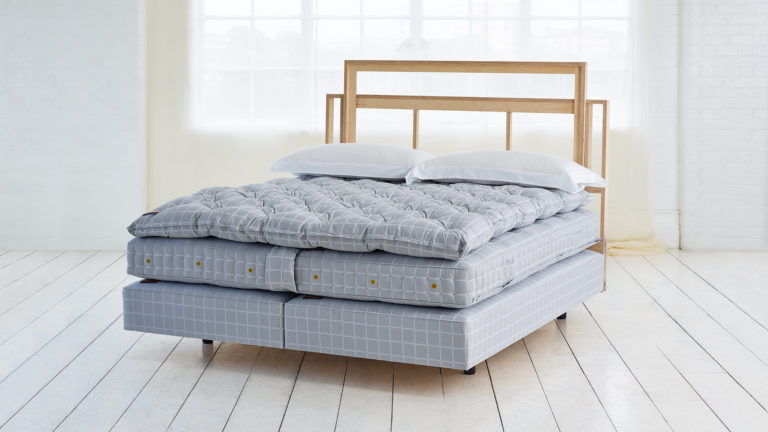The role of nature in quality sleep and well-being
Scientists have found a direct correlation between air quality, temperature, and sleep quality. From plants to airflow, we unveil the importance of natural, sustainable materials and how they can help you drift off.
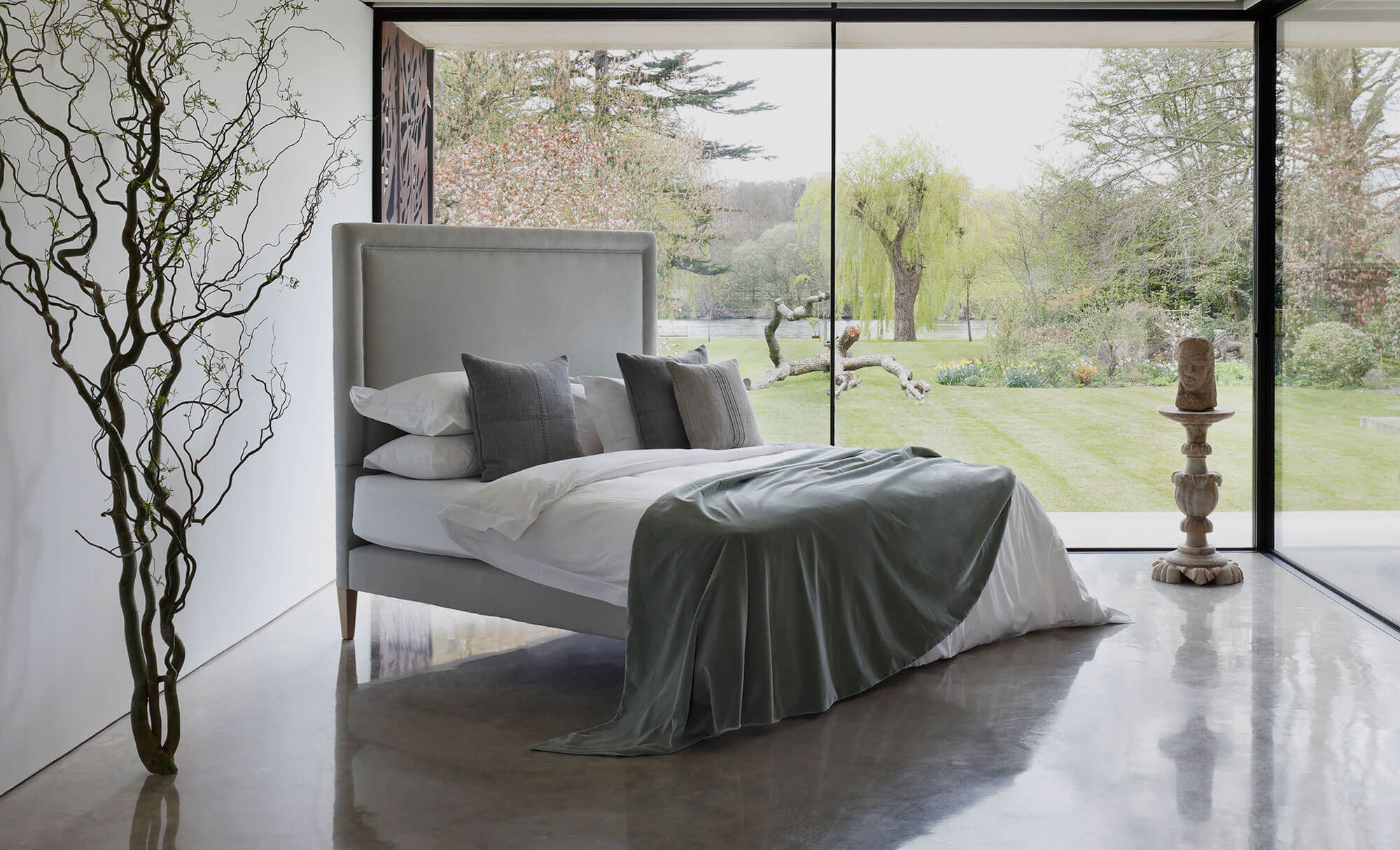
As experts in handcrafting the finest beds that provide the ultimate support and comfort, we understand the importance of natural materials in aiding sleep and improving your well-being. However, there are other aspects within your bedroom that can influence your ability to achieve a restorative night’s sleep. Recent research shows that there is a direct correlation between air quality, natural materials, temperature, and your well-being. From plants to airflow, we unveil the natural ways to improve the quality of your sleep.

Temperature control
Temperature is one of the most crucial aspects of a healthy night’s sleep. Your sleeping surface is key to staying in a thermal neutral range. It’s where we ideally spend a third of our lives. So, it’s important that it helps temperature regulation and prevents us from overheating, which can result in disrupted sleep.
Choosing a bed, mattress and bedding made from breathable and thermo-regulating materials is optimal for achieving a cool body temperature. Natural materials help maintain normal body temperature at the sleeping surface, by channelling moisture away. This is why we continue to use only the finest natural materials. Their ability to wick away moisture helps to regulate body temperature all year round. Which, in turn, improves the quality of your REM sleep.
A natural sleeping surface also allows airflow. Keeping you cool during the warmer nights. This is very important considering a recent report in the journal Nature and Science of Sleep revealed that maintaining a cool body temperature can help you sleep longer.
A mattress that retains heat will also limit the quality of your sleep. A heat-inducing sleeping environment and surface can really set us up for failure, such as fragmented sleep.
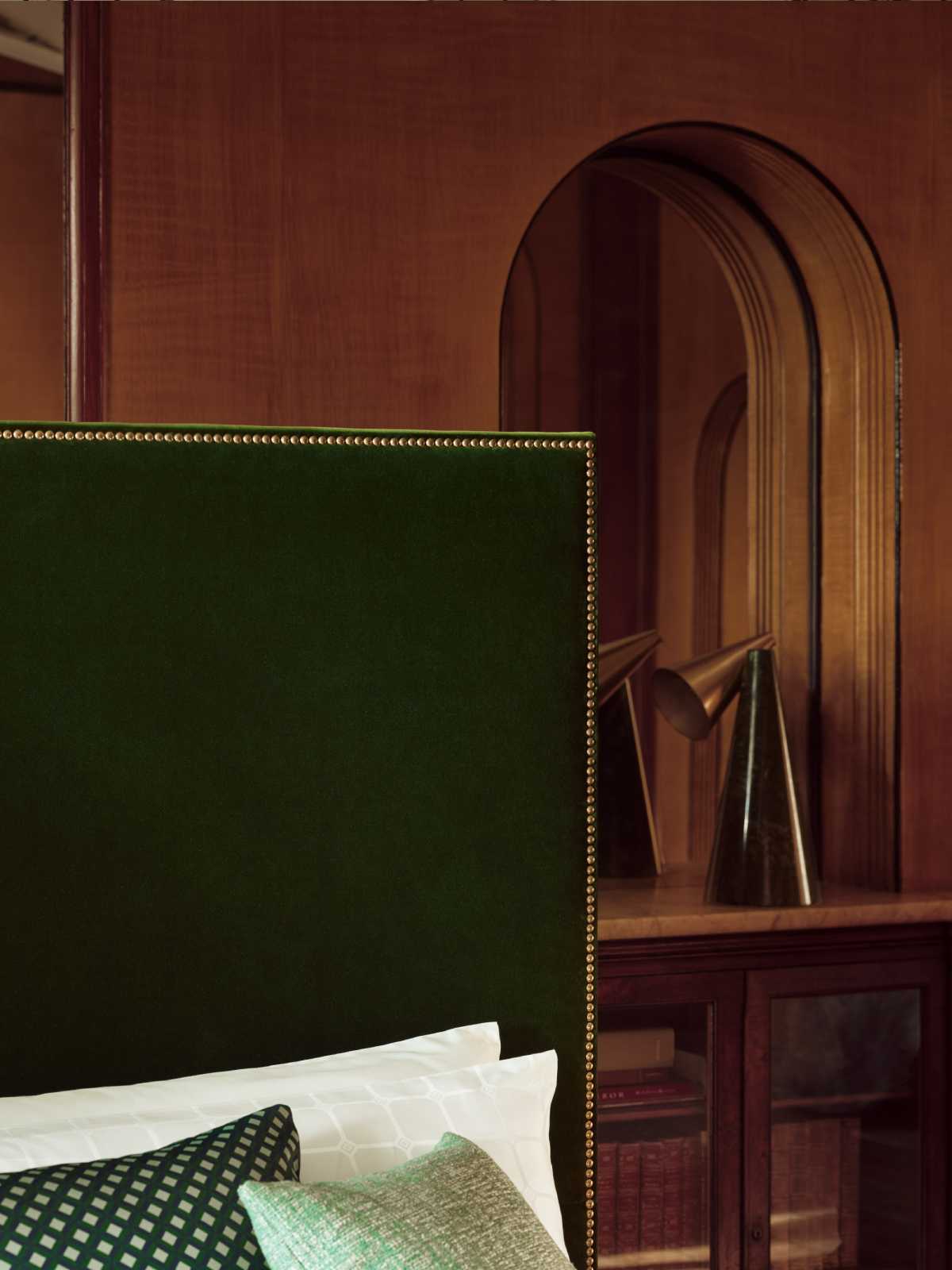
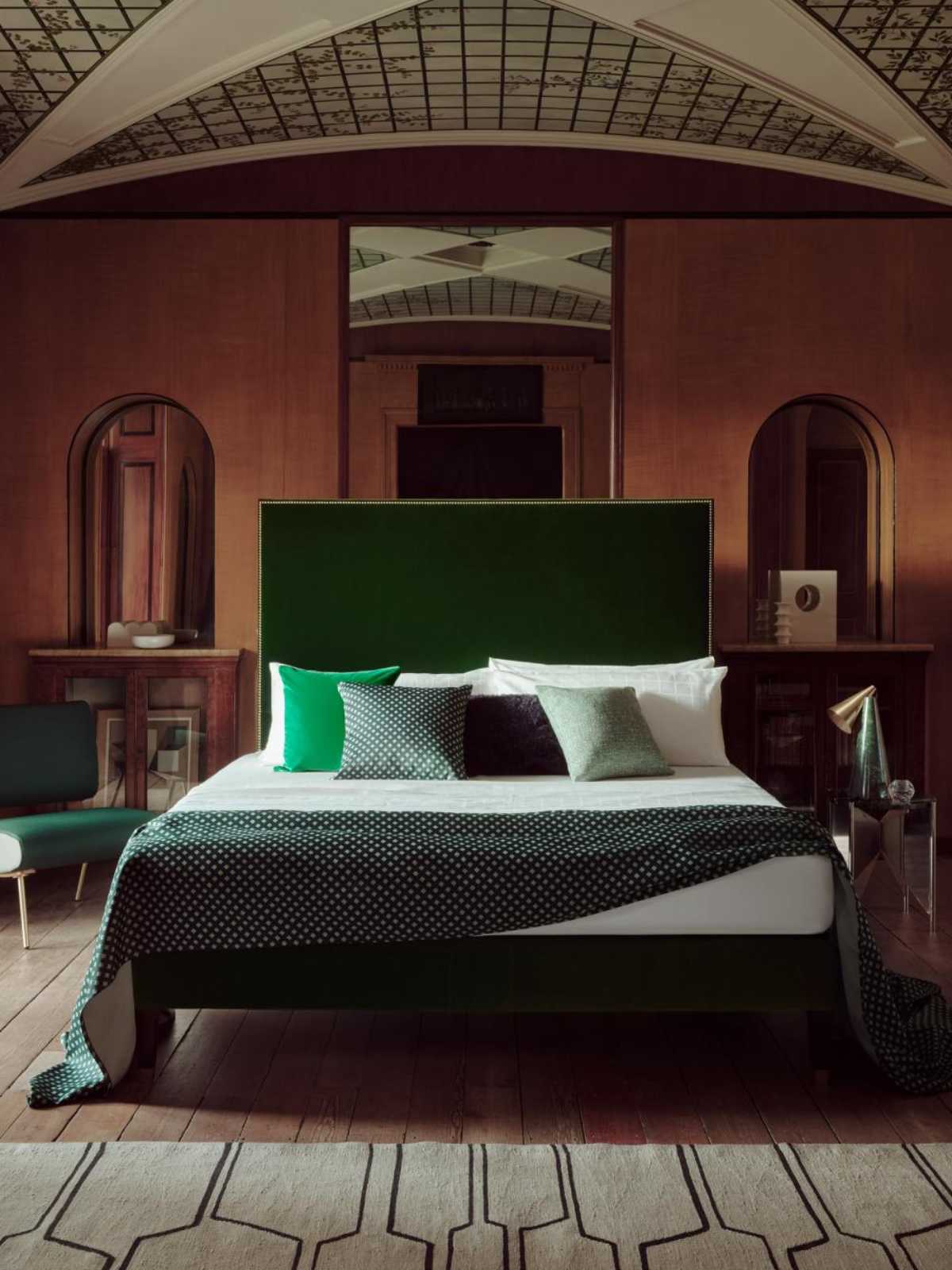
Synthetic fibres, like latex and memory foam, may cause overheating and deteriorate over time. While natural fibres, such as cotton and horse tail offer longer-lasting comfort and support. South American horse tail is perhaps the most luxurious, breathable fibre. At Savoir, we use it at the heart of most of our mattresses and toppers. This premium filling cushions and supports every contour of your body. And because like wool, horse tail is naturally hollow, it has a greater surface to wick away moisture, helping to regulate your temperature to keep your body in a thermal neutral range.
In addition to improving the quality of your sleep, a natural bed also offers a sustainable option. Natural fibres are much more in sympathy with the environment. Compared to the alternatives such as synthetic fibres and oil-based plastics, which can end up in landfill and take decades to decompose. Whereas the natural components that create our beds are biodegradable and the steel springs are recyclable.
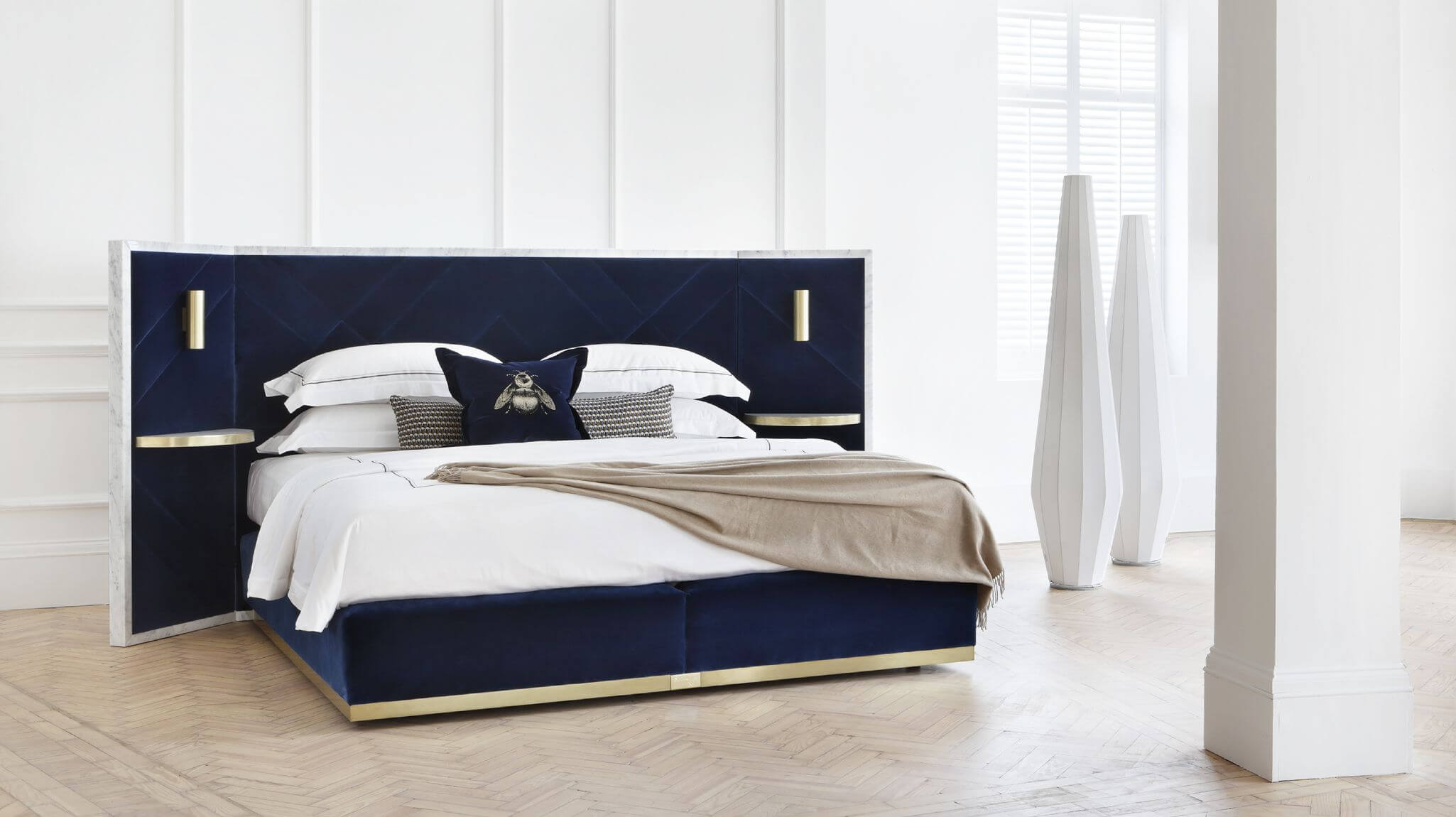
Air quality
Good air quality is crucial for our health and well-being. With the bedroom being the space where we spend a third of our lives, it’s vital that the air quality in the room sets us up for restorative sleep. Recent studies have shown that both sleep quality and next-day performance improved by increasing the amount of clean outdoor air within the bedroom.
With a direct correlation between sleep and air quality, it’s important to consider furniture and textiles’ role in the bedroom. the European Environment Agency revealed that synthetic fibres, such as polyester and nylon, make up around 70% of household textiles. To achieve better air quality, we must consider the materials that surround us.
Do we want the space where we spend a third of our lives to be full of plastic? Furniture and textiles made from natural materials can help reduce the number of microplastics in your home environment. They can also encourage fresh air to move freely through the room, due to their construction and low heat retention.
Natural sleep heroes
Natural wonders
Plants are incredibly important for our well-being. They are widely known to bring cortisol levels down and boost our mood. However, it has been found that just 15 minutes of interaction with green plants may also help reduce the time it takes to fall asleep and reduce sleep disturbances
A NASA-conducted research indicates that certain indoor plants can help remove pollutants and gases from our homes. Many of the leaves in indoor plants such as Ficus, Dracaena and Boston Fern can absorb harsh chemicals. They also produce oxygen and absorb CO2 at night, which further increases the quality of your sleep.
Natural sleep doesn’t need to just be contained to our sleeping environment. Research has revealed that greater accessibility to green landscapes has been associated with higher levels of physical activity. Which in turn, benefits sleeping patterns. Particularly for men, there is a decreased likelihood of insufficient sleep for those that visited a green space or spent time in a natural outdoor environment.
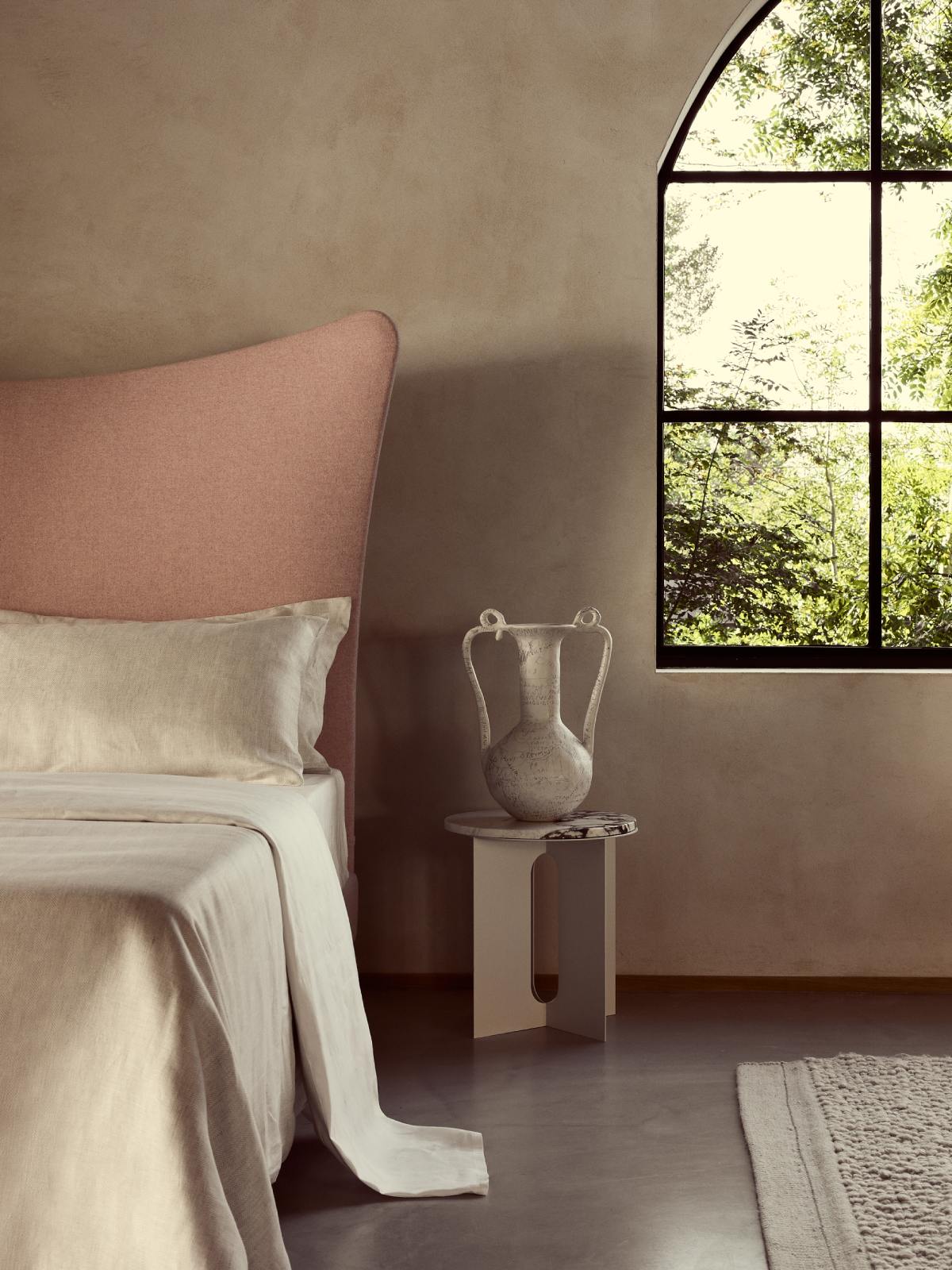
Calming scent
One of the reasons aromatherapy is used as one of the natural ways to improve sleep quality is because it can help regulate the nervous system. As anatomē’s head nutritionist revealed within our Guide to Essential Oils, natural essential oils work in communication between your nose and your brain. Any time we smell something, especially in natural fragrances like essential oils, we inhale particles called esters. The odour (esters) floats in the air reaching the nostrils and dissolves on the roof of each nostril. This is where specialised receptor cells, called olfactory receptor neurons, detect the odour. These neurons can detect thousands of different odours.
It is the olfactory receptor neurons that transmit messages to the part of the brain which influences emotions, and memories and modifies conscious thoughts. It is this process that results in behavioural changes such as relaxation of the body.
There are also some specific natural fragrances that when burned can help improve air quality. This includes tea tree oil which boasts antibacterial properties and cedarwood for its anti-inflammatory and antimicrobial qualities. Eucalyptus oil is also a good consideration as it is known to open up air pathways and cleanse high-traffic spaces.
With sleep being the foundation of everything it means to be alive and well, we hope that your bedroom is full of wonderful natural materials to create a supportive sleeping environment. Helping you to reap the mental and physical benefits of a restorative night’s sleep.
Read our recent article, Optimal sleeping temperature with Dr Rebecca Robbins, to discover the science of temperature regulation and the impact it can have on quality sleep.
